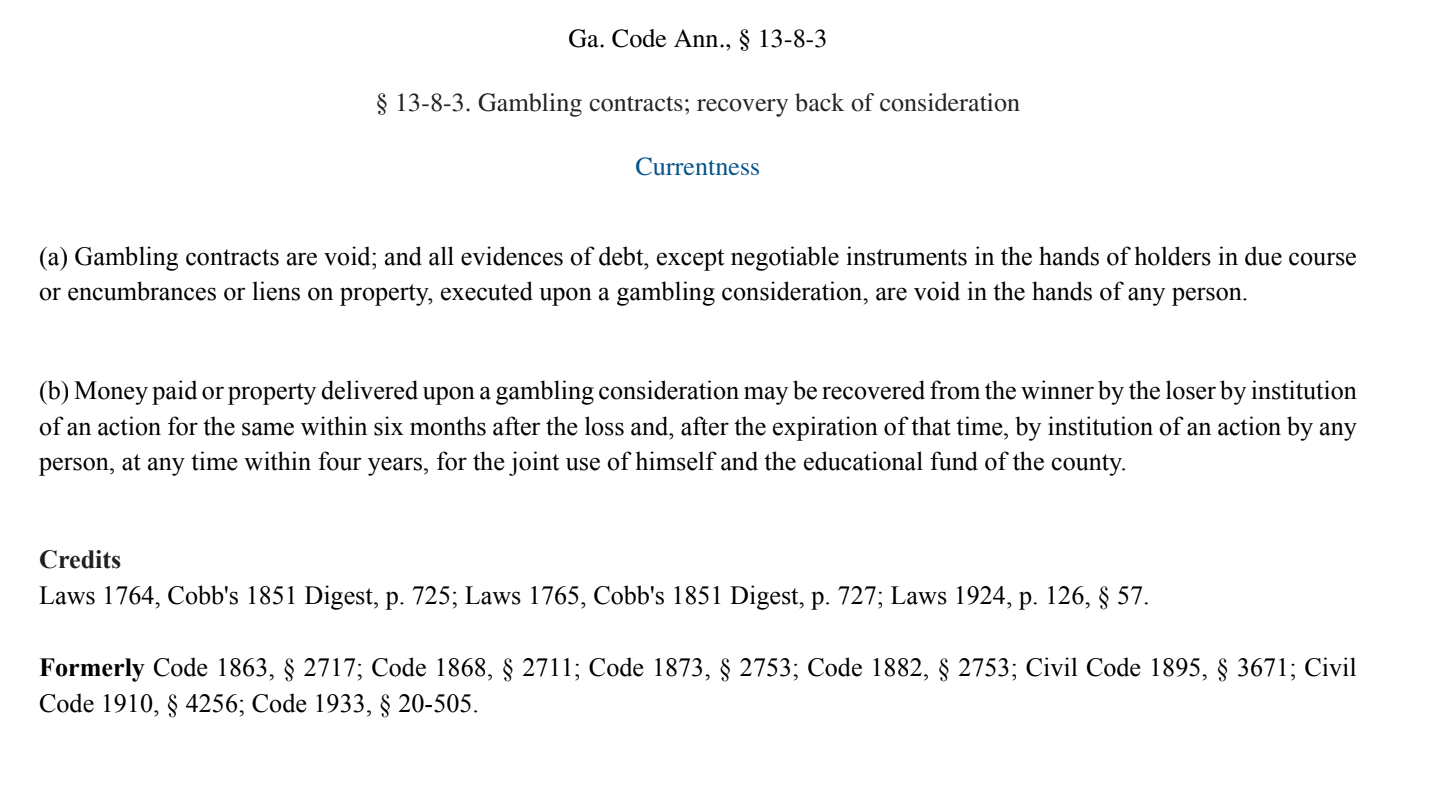Owner of Alabama Auto Dealership Latest Sued Under Little Known GA Bookie Law
Earlier this week, Gambling911.com reported exclusively on how a former Texas Longhorn player had been sued using a quirky Georgia law applied to bookmakers.
That same law is now being applied to a popular Walker County, Alabama auto dealership owner, Gambling911.com can once again report exclusively.
The complaint, filed late last week, lists Edward B. Short of Georgia as the plaintiff and two co-defendants, one of whom owns the car dealership.
This case references a little known state legal code pertaining to gambling contracts (appearing below). Bookies operating in Georgia or those who operate out of state but accept players from Georgia should be made aware of this code. Gambling911.com is the most read website by bookies, Pay Per Head and sportsbook operators, so it is indeed time to become educated, especially considering the time frame of four years recovery time. It is highly recommended to stick to actual Pay Per Head sites, not the so-called Twitter bookies (check out our Pay Per Head reviews here)
The reality here is that none of this should, in theory at least, matter provided the bookie pays. It's extremely doubtful a player would go as far as to file such an action without just cause. Plaintiff Short has taken this action in order to have funds recovered but Short is not an actual bettor. Instead he is described as a whistleblower "to recover every dollar these guys took in". That is according to the attorney representing Mr. Short, who confirmed Monday September 25, 2023 both defendants were served and implies by this action the defendants are not acting in good faith.
We've opted to keep the names redacted for now until we reach out to primary defendant.
For all of you out there who bitch and complain about getting stiffed. In some circumstances, you DO have options. @spanky @JoeyKnish22 @joeytunes2 @real_fats @mack_feedme @DavidPurdum https://t.co/U7y0qJhNqX
— Joseph P. Durham, Jr (@fishinlawyer) September 22, 2023

"The ongoing case against the former College Football player who turned into a bookie who refuses to pay is going to be interesting", the attorney who brought the case against former Longhorns player Clark Ford, Joe Durham, commented via his X page.
Durham, we should note, is a friend of many pro sports bettors and others in the space. He regularly appears on industry podcasts. Even he admits the Georgia law is "very unique".
The suit against (redacted) claims, among other things, "breaches by the defendant" through ownership of a customized Pay Per Head provided website.
The complaint against these individuals contends the following:
"Although gambling contracts are illegal and/or unenforceable under Georgia law, Plaintiff is authorized to bring this action for the return and/or recovery of all money paid to (redacted) and/or (redacted) by any person as part of any gambling contract, as outlined in (among other places) Official Code of Georgia Annotated, Section 13-8-3.27.
"At all times material hereto, (redacted) and (redacted) (individually and/or collectively) have received money and/or property, an amount of not less than of One Hundred Thousand Dollars ($100,000.00) which was paid or delivered to/or for the benefit of (redacted) and/or (redacted), upon gambling consideration."
Durham offered his analysis of the law to Gambling911.
"If you lost an illegal bet (for example with a local bookie who is using a PPH site) and then paid him, you can sue to recover your losses, provided you do so within 6 months.
"ANYONE can sue another person who has gotten ANY money over a 4 year period as a result of illegal gambling and the recovered money is, after attorneys’ fees are deducted, split with the Plaintiff and the educational fund."
"Pursuant to applicable Georgia law, Plaintiff hereby states his willingness, desire, and responsibility to share certain proceeds (if recovered) from (redacted) and/or (redacted) with the Educational Fund of Dougherty County, as required by Official Code of Georgia Annotated, Section 13-8-3."
Notice Mr. Short does not wish to share all of it.
- Chris Costigan, Gambling911.com Publisher















